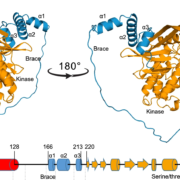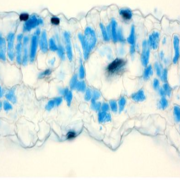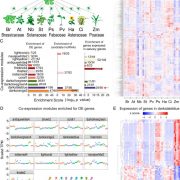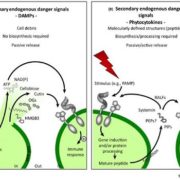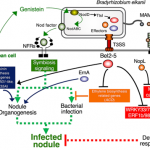When fungi get ‘SCOOP’ed: MIK2 receptor kinase perceives SCOOP phytocytokines in Arabidopsis thaliana (Nature Comms)
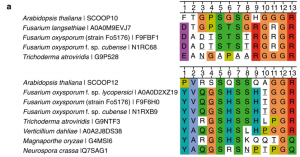 Plant cells sense endogenous and exogenous molecules through proteins localized to the cell surface. While numerous ligands that mediate a variety of developmental and stress processes are known, cognate receptors for many ligands remain unidentified. Rhodes and colleagues have now shown the Arabidopsis thaliana leucine-rich receptor kinase MIK2 to be the receptor for the SCOOP (SERINE RICH ENDOGENOUS PEPTIDE) family of secreted peptides that function as ‘phytocytokines” (in mammals, cytokines are immune-regulating secreted peptides). Testing a range of microbe and plant-derived elicitors, the authors found mik2 mutants to be unresponsive to SCOOP peptides. They found SCOOP peptides directly bind MIK2 protein and induce MIK2 binding with its co-receptor, BAK1, as well as BAK1 phosphorylation. Significantly, peptides with SCOOP-like motifs from the pathogenic fungi belonging to Fusarium spp. also induced responses similar to Arabidopsis SCOOP peptides, illuminating the basis for MIK2-based resistance fungal pathogens. (Summary by Pavithran Narayanan @pavi_narayanan) Nature Comms. 10.1038/s41467-021-20932-y.
Plant cells sense endogenous and exogenous molecules through proteins localized to the cell surface. While numerous ligands that mediate a variety of developmental and stress processes are known, cognate receptors for many ligands remain unidentified. Rhodes and colleagues have now shown the Arabidopsis thaliana leucine-rich receptor kinase MIK2 to be the receptor for the SCOOP (SERINE RICH ENDOGENOUS PEPTIDE) family of secreted peptides that function as ‘phytocytokines” (in mammals, cytokines are immune-regulating secreted peptides). Testing a range of microbe and plant-derived elicitors, the authors found mik2 mutants to be unresponsive to SCOOP peptides. They found SCOOP peptides directly bind MIK2 protein and induce MIK2 binding with its co-receptor, BAK1, as well as BAK1 phosphorylation. Significantly, peptides with SCOOP-like motifs from the pathogenic fungi belonging to Fusarium spp. also induced responses similar to Arabidopsis SCOOP peptides, illuminating the basis for MIK2-based resistance fungal pathogens. (Summary by Pavithran Narayanan @pavi_narayanan) Nature Comms. 10.1038/s41467-021-20932-y.



